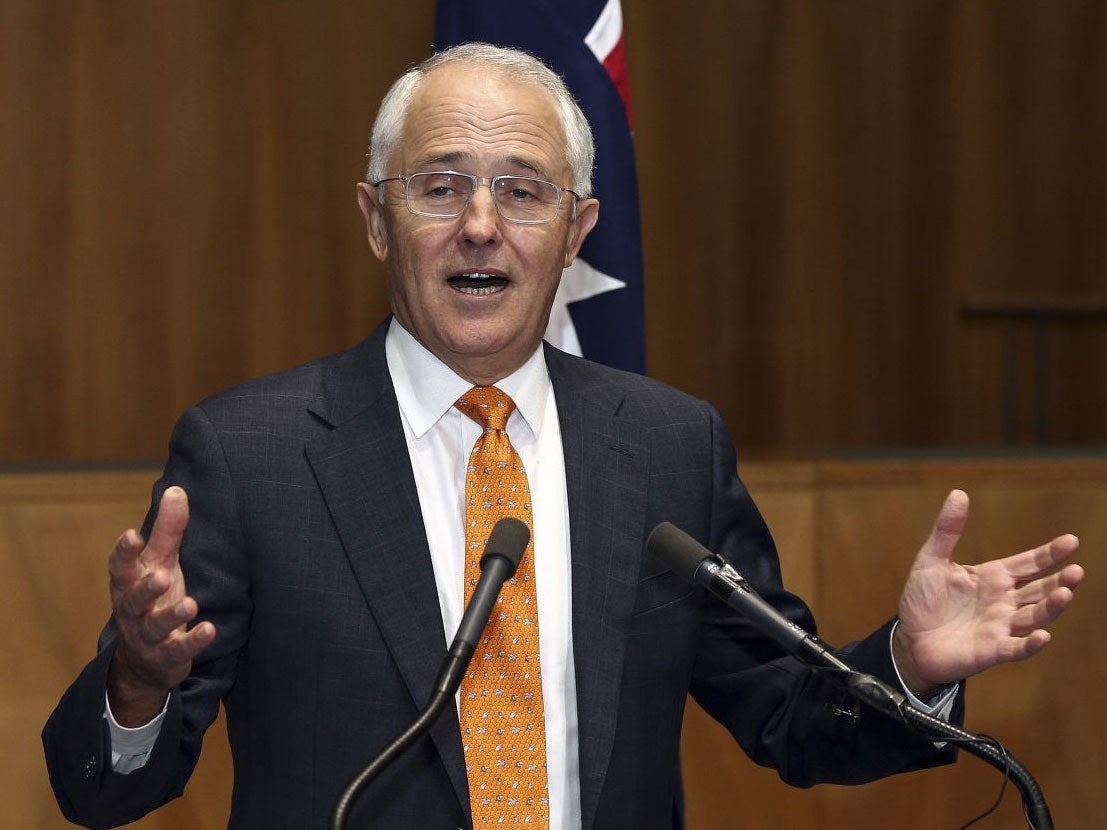Australia elections 2016: when is it – and what's it all about
The country's policy on asylum seekers will once again prove divisive

Australia's Prime Minister Malcolm Turnbull has fired the starting gun on one of the longest election campaigns in Australia's history against the backdrop of a flagging economy and heated debate over sensitive political issues like asylum seekers.
So when is it?
Turnbull officially called federal elections for July 2, several months earlier than originally planned, using rarely invoked powers to dissolve both houses of parliament after the upper house Senate repeatedly blocked government legislation.
The federal poll throws up the spectre of more political instability in Australia, where infighting among the leading parties has resulted in a revolving door to the top job at a time when Australia is trying to rebalance its economy away from a once-in-a-generation mining boom.
Turnbull, considered a moderate in the conservative Liberal Party-led coalition government, became the fourth leader in two years when he deposed right-wing predecessor Tony Abbott in an internal party coup in September.
What did he say?
"We live in an era when the scale and pace of economic change is unprecedented through all of human history," Turnbull told reporters after setting the election in motion.
"In a few years more than half of the world's middle class will be living in Asia," Turnbull said. "The opportunities for Australia are enormous."
Who's likely to win?
The government is running neck-and-neck in opinion polls with the centre-left Labor opposition, a sharp turnaround from Turnbull's honeymoon period, during which he was one of the most popular leaders in Australian history.
Labor leader Bill Shorten has been quick to paint Turnbull, a multi-millionaire lawyer and former tech entrepreneur, and the coalition as friends of big business.
"They are pursuing a policy to reward big tax cuts to major corporations," Shorten, who has promised major spending on health and education, told reporters.
Crazy things Tony Abbott’s said (mainly about women)
Show all 16I thought Turnbull was popular...
The government's federal budget announced last week was notably short on vote-winning incentives as falling commodity prices ate into state revenues.
There has also been disappointment in some quarters with Turnbull, whom many expected to distance himself from the right-wing policies of Abbott on issues such as immigration and climate change.
As Turnbull was speaking in Canberra, police arrested 66 people at a protest against fossil fuels on Newcastle Harbour, one of the world's biggest coal export ports about two hours' drive north of Sydney.
Australia's hardline immigration policy, under which asylum seekers intercepted at sea trying to reach Australia are sent for processing to camps on Nauru and on Manus Island in Papua New Guinea, has also led to recent protests.
The harsh conditions and reports of systemic child abuse at the camps, which house asylum seekers fleeing violence in Syria, Iraq, South Asia and Africa, have drawn wide criticism from the United Nations and human rights groups.
The winner should at least find it easier to pass legislation because the so-called double dissolution election for both houses of parliament should ease the political deadlock that has characterised Australian politics since the last election in 2013.
Reuters
Subscribe to Independent Premium to bookmark this article
Want to bookmark your favourite articles and stories to read or reference later? Start your Independent Premium subscription today.

Join our commenting forum
Join thought-provoking conversations, follow other Independent readers and see their replies